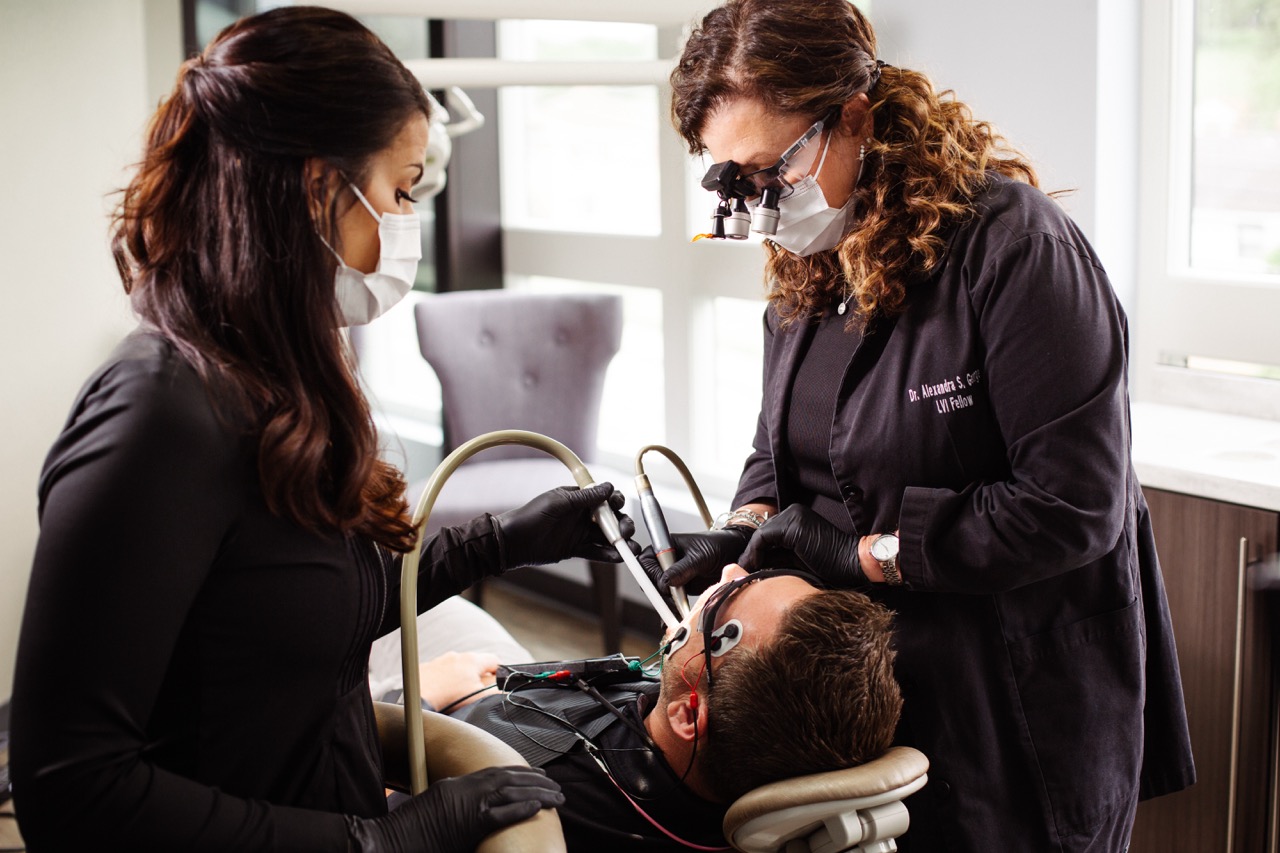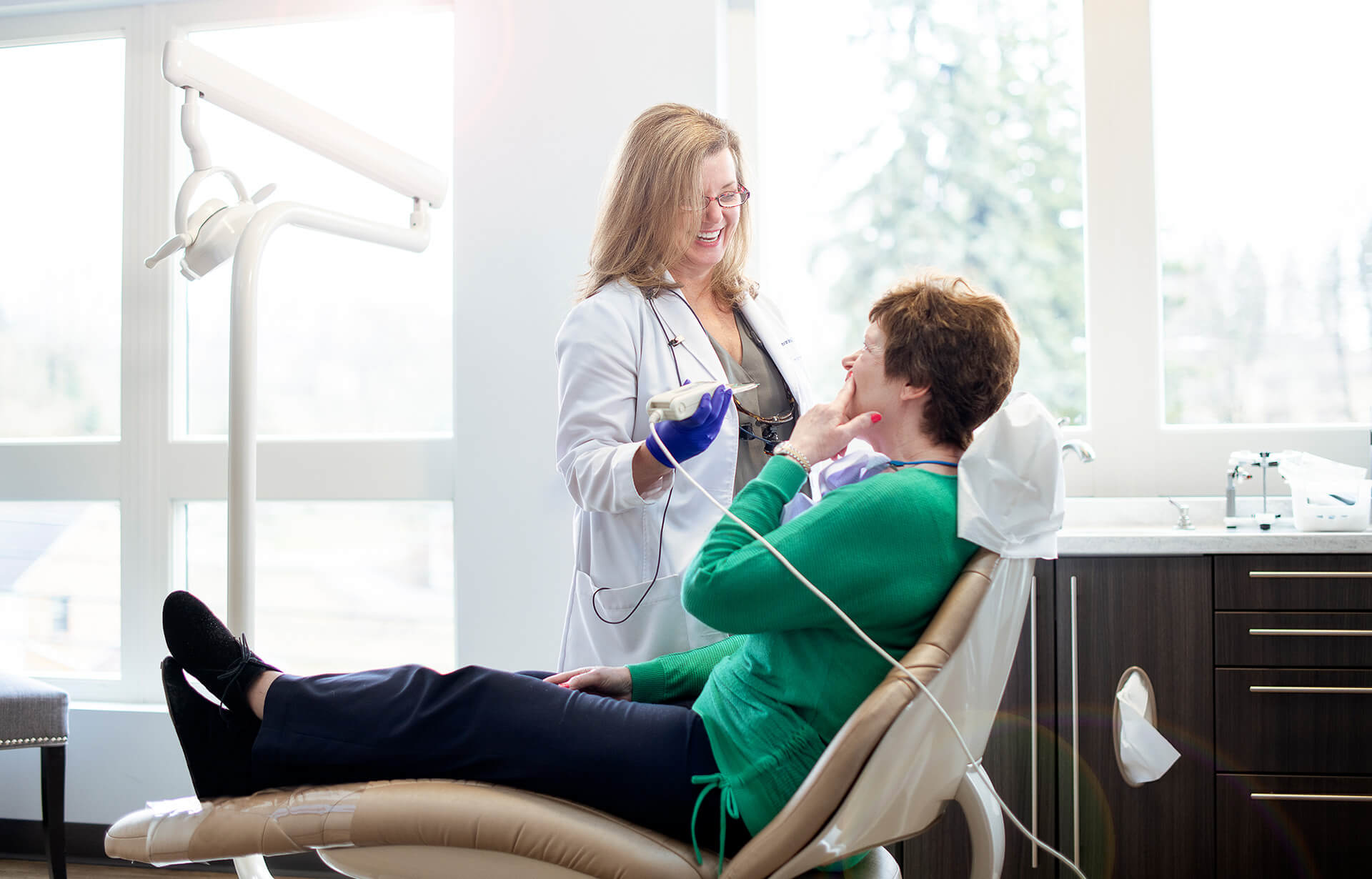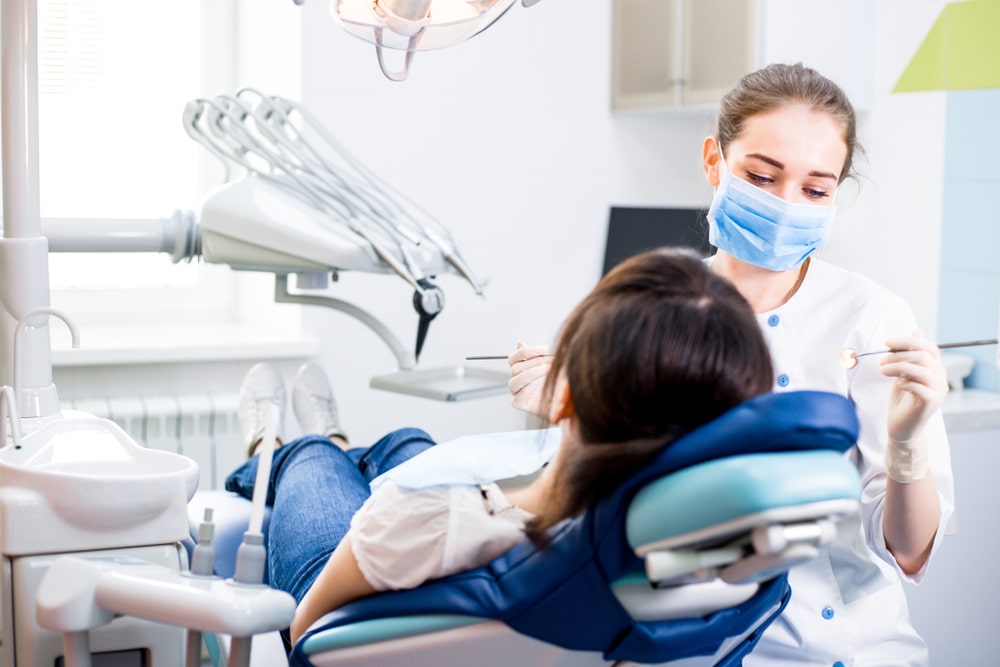Temporomandibular joint disorder (TMJ/D) is a medical condition where the temporomandibular joint of the jaw becomes misaligned and causes pain throughout the face, head, neck and even the back.
Patients with the disorder often have trouble being diagnosed because of the range of symptoms. A TMJ specialist takes the time to perform tests to truly diagnose TMJ/D. But one symptom, in particular, is much more obviously related to TMJ disorder – and a lot harder to deal with.
What is Locked Jaw and TMJ?
Locked jaw, medically known as trismus, is a condition characterized by the inability to open the mouth fully. The most common cause of locked jaw is temporomandibular joint (TMJ) disorder. The TMJ is the joint that connects your jawbone to your skull, and dysfunction in this joint can lead to pain, stiffness, and difficulty in opening or closing the mouth.
The symptoms of locked jaw, or trismus, can vary depending on the underlying cause. However, some common signs and symptoms may include:
- Difficulty opening the mouth – This is the primary symptom of locked jaw. Individuals may find it challenging or impossible to open their mouth fully.
- Pain or Discomfort – There may be pain or tenderness in the jaw joint or the surrounding muscles, especially when attempting to open the mouth.
- Stiffness – The jaw may feel tight or stiff, making it difficult to move or stretch the jaw muscles.
- Clicking or Popping Sounds – Some individuals with locked jaw may experience clicking or popping sounds when they try to move their jaw. This can be indicative of a temporomandibular joint (TMJ) disorder.
- Headaches – Pain in the temples or around the ear area, often radiating from the jaw, can be a symptom.
- Earaches – Some people with locked jaw may experience pain or discomfort in the ears.
- Chewing difficulties – Due to limited jaw movement, eating may become challenging, especially chewing hard or tough foods.
- Speech difficulties – Severe cases of locked jaw may affect speech, making it harder to articulate words.
- Facial swelling – In cases where the locked jaw is caused by an infection or inflammation, there may be swelling in the jaw or face.
- Muscle spasms – In some cases, muscle spasms around the jaw area may be present, contributing to the locking sensation.
Locked Jaw Due to TMJ
A locked jaw is a symptom of TMJ disorder that causes the jaw to not close or open all the way due to stiffness. That stiffness can be caused by any number of things, including talking, chewing some foods, being hit in the jaw, and even breathing.
The bad news is most of those behaviors are pretty common – and pretty necessary in some cases (hello, eating and breathing!), so you can’t exactly ignore them. But the good news is that when lockjaw does occur, there are steps you can take to help unlock the jaw and ease the pain.
What to do if your jaw locks:
- Don’t panic. It’s like those wicker finger puzzles you used to get as prizes at the arcade. The more you panic and struggle, the worse things will get and the harder it will be for you to unlock your jaw. Just try to breathe in and out in deep, cleansing breaths and move to step two.
- Apply a warm compress to both sides of the jaw to loosen the muscles that have become tense.
- If you cannot open and close your jaw, try moving it from side to side. This could help push it back into place and allow you to open and close it again.
- Call (or have someone else call) Dr. Alexandra George and schedule an appointment to have your jaw checked. A TMJ dentist and specialist will either reset your jaw or make sure it has properly reset.
- If you experience a locked jaw that persists and inhibits your ability to eat or speak, head to the emergency room for evaluation.
Other Causes of Locked Jaw
Although TMJD is one of the most common causes of locked jaw, there are other underlying conditions that can cause the jaw muscles to become tight and make it difficult to open the mouth fully.
- Dental issues – Dental problems, such as tooth decay, gum disease, or dental abscesses, can lead to jaw pain and muscle stiffness, potentially causing trismus.
- Trauma or injury – Physical trauma to the face or jaw can result in muscle strain or injury, leading to a locked jaw. This can occur due to accidents, sports injuries, or other types of blunt force trauma.
- Infections – Infections in the head and neck area, such as mumps, tetanus, or deep neck abscesses, can cause inflammation and muscle spasms that result in trismus.
- Oral surgery – After certain oral surgeries, such as wisdom tooth extraction or single tooth extractions, some individuals may experience temporary trismus as a result of inflammation and swelling.
- Muscle spasms – Muscle spasms or cramps in the jaw area can cause temporary locking of the jaw. Dehydration, electrolyte imbalances, or excessive chewing can contribute to muscle spasms.
- Medications – Some medications, such as antipsychotic drugs or muscle relaxants, may have side effects that lead to muscle stiffness or locked jaw.
- Neurological conditions – Certain neurological conditions, such as dystonia, can affect the muscles of the jaw and lead to trismus.
- Radiation therapy – Individuals undergoing radiation therapy for head and neck cancer may experience trismus as a side effect due to tissue damage and scarring.

How a TMJ Dentist Can Help
Unlike general dentists, a TMJ dentist specializes in the diagnosis and treatment of TMJ/D. Dr. Alexandra S. George DDS takes the time to learn about your condition so that we can customize a specific treatment plan.
We look at the oral and facial structure as a whole, evaluating the muscles of the head and neck, your posture, symptoms, your bite, jaw alignment, and more. Once diagnosed, a TMJ dentist will recommend one or more of the following treatment options:
- Orthotic appliance – A semi-permanent appliance that is removable and may be worn up to 24 hours a day, an orthotic appliance moves the lower jaw in the proper position to reduce painful TMJ/D symptoms.
- Disclusion Time Reduction (DTR) Therapy – Using the latest Tekscan and EMG technology, DTR therapy provides us with accurate measurements of a patient’s bite. We can identify contacts that may be leading to hyperactive muscles, breakage, and TMJ/D symptoms. With the data gathered, Dr George can make accurate micro-adjustments to the tooth and achieve a better-balanced bite and more functional bite activity.
- Crowns – Crowns can help relieve painful TMJ/D symptoms by restoring your teeth to a pain-free position. Unlike orthotic appliances, crowns are not removable. Crowns are ideal for patients with a history of teeth grinding (bruxism) and worn teeth as they can help restore the tooth’s structure.
- Braces – The objective of braces for TMJ/D treatment is to move the teeth and remodel the jawbone structure to a more comfortable and permanent position. While traditional braces focus on aesthetics, straightening the teeth, and aligning the bite, braces for TMJ/D focus on relieving pain and discomfort.
Living with TMJ disorder can be challenging and disruptive. Dealing with constant pain and discomfort can significantly decrease your quality of life and knock you off balance. If you’ve been diagnosed with or suspect that you have TMJ disorder, contact us and we can create a treatment plan tailored for you.




